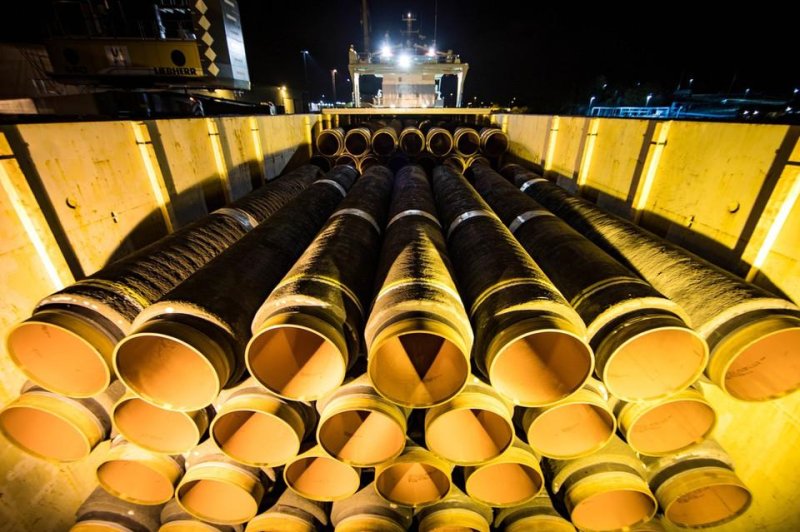Denmark is the last country to sign off on the permits needed to build the Nord Stream 2 pipeline through its territorial waters. Photo courtesy of Nord Stream 2/Axel Schmidt
Aug. 15 (UPI) -- The consortium managing the second leg of the Nord Stream gas pipeline from Russia to Europe said it has all the permits needed for Russian installation.
Russian energy company Gazprom leads a consortium working to twin the Nord Stream natural gas pipeline running through the Baltic Sea to Germany. The consortium now has the permits to build a 70-mile section of the second phase of the pipeline in Russian territorial waters.
"We are glad to announce that the necessary construction permits in Russia have been granted, meaning that the Nord Stream 2 project is developing according to the planned schedule," Chief Project Officer Henning Kothe said in a statement.
Russia, Germany, Finland and Sweden have signed off on construction permits for their territorial waters. The Danish Foreign Ministry is still considering the permits necessary to double the pipeline. The consortium managing the network is said to be considering an alternate route around Danish waters, according to a report last week from Russian news agency Tass.
"We will further rely on collaboration with the countries involved to ensure the project is implemented in a timely and efficient manner," Kothe added.
The second phase of the Nord Stream pipeline is a source of geopolitical debate. European countries depend heavily on Russian natural gas, but have expressed concerns about Gazprom on anti-trust grounds. The company controls both the natural gas supplies and transit arteries.
Several European countries are working to break the Russian grip on the energy sector, but have few resources of their own. Norway is another major gas supplier to the European market, though U.S. officials have said liquefied natural gas sources from shale basins in the Lower 48 could be another option.
European Commission President Jean-Claude Juncker said last week that Europe was ready to move on U.S. LNG "if priced competitively."
Gazprom has countered that LNG from the United States isn't competitive because of higher production and transit costs. Exports are restricted, meanwhile, by the lack of free trade agreements between the United States and European countries.
Construction on the Russian leg of the second string for Nord Stream is slated to begin later this year.















